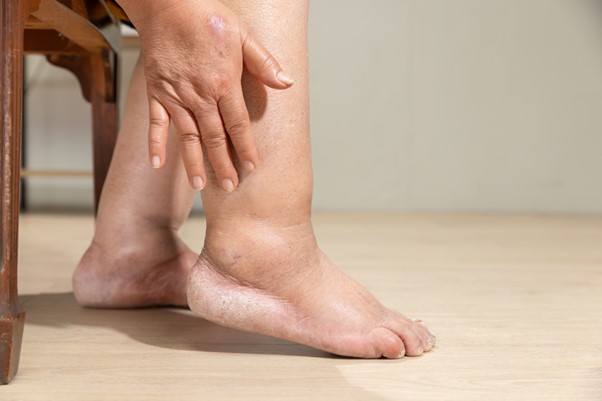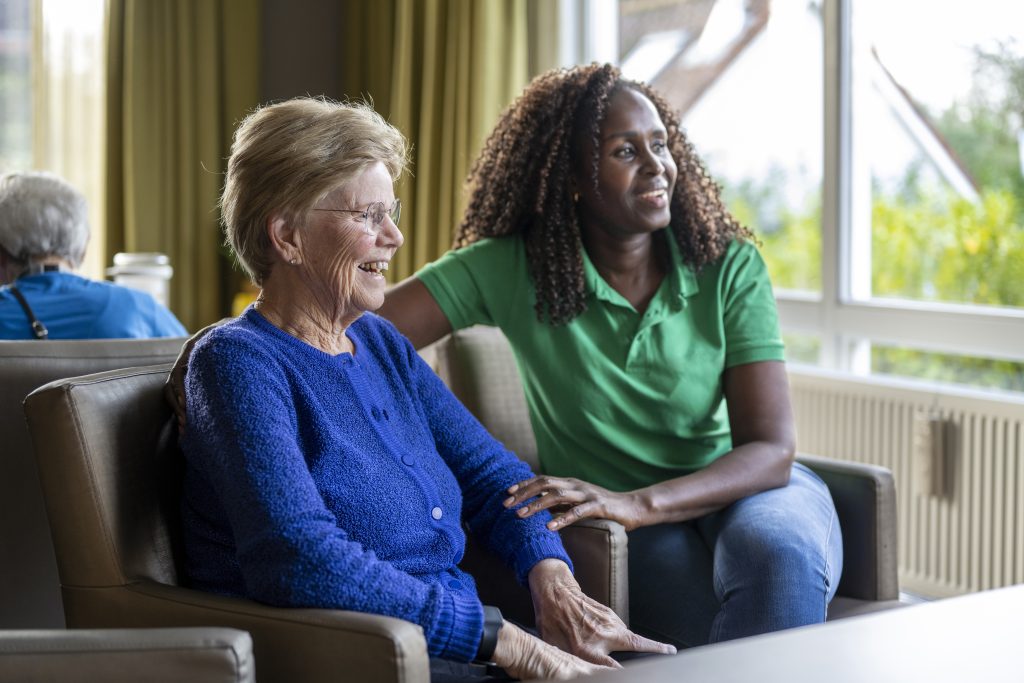Caring for a senior with diabetes is about more than managing blood sugar—it’s about protecting every part of their health, especially their feet. As people age, diabetes can reduce blood flow and cause nerve damage, making it harder to notice injuries or infections. Without proper diabetes foot care, small issues can quickly turn serious.
But here’s the good news: with the right support at home, foot care can become a simple, comforting routine. Seniors who receive senior home health care services benefit most when caregivers focus on prevention, early detection, and gentle, daily care. These small efforts make a big difference in comfort, safety, and quality of life.
Daily Foot Checks Matter More Than You Think
One of the most important habits for seniors with diabetes is checking their feet every day. This helps catch cuts, blisters, or redness early, before they become a problem. Many seniors have reduced sensation in their feet, so they might not feel an injury. That’s why having a caregiver take a quick look each day is so helpful.
With help from a personal care assistant, seniors don’t have to strain to see their own feet. This support gives peace of mind and ensures nothing gets missed. It’s one of the simplest ways to avoid bigger medical issues later on, especially when included in senior home health care services.
Clean, Dry, and Moisturized
Keeping feet clean and dry is key to avoiding fungal infections or skin breakdown. A gentle wash with warm (not hot) water, followed by soft drying—especially between the toes—can prevent many problems. Moisturizer helps keep skin from cracking, but it should be used carefully so it doesn’t make areas too slippery.
Caregivers can make this part of the daily hygiene routine feel more like pampering than a chore. Seniors often enjoy the soothing sensation of warm water and lotion. Including this kind of foot care in daily routines, especially under elderly care nutrition support programs, ensures both comfort and safety.
Watch for Signs That Need Medical Help
Even with the most attentive care, issues can still arise, especially when it comes to diabetes-related foot problems. The key is spotting warning signs early so they don’t turn into serious health concerns. That’s why daily checks and open communication with caregivers are so important.
Here are signs that may need quick medical attention:
- Swelling in one or both feet
- Redness or warmth that wasn’t there before
- Cuts, sores, or blisters that don’t heal
- Discoloration or dark spots on the skin
- Numbness, tingling, or a “pins and needles” feeling
- Unusual odor or drainage from a wound
- Increased pain in the feet or legs
When a caregiver provides senior home health care services, they’re often the first to notice these signs. Early detection allows for faster treatment and may prevent hospital visits, infections, or more serious complications.
Proper Shoes Make a Huge Difference
Shoes that are too tight, too loose, or lack support can cause blisters, pressure sores, or worse. Seniors with diabetes need properly fitted shoes that protect the feet without rubbing or squeezing. Orthopedic or diabetic-friendly shoes are often the best choice.
A caregiver can help check the inside of shoes for anything that might cause harm, like seams, rough spots, or small objects. They can also remind seniors to never go barefoot, even inside. Good shoes, paired with attentive care, offer a powerful layer of protection.
Nutrition’s Role in Foot Health
What a person eats has a direct effect on how well their body heals and fights infection. Seniors with diabetes need balanced meals full of nutrients to keep their skin healthy and their immune system strong. That’s where nutrition support services come in.
Caregivers can help plan and prepare meals with the right mix of protein, fiber, and healthy fats. With specialized nutrition support, they also monitor blood sugar-friendly choices that promote circulation and tissue repair. Good nutrition doesn’t just taste good—it helps protect feet from the inside out.
Nail and Skin Care Done Safely
Trimming toenails may seem simple, but for someone with diabetes, it needs to be done very carefully. A small nick or cut can turn into a serious infection. Caregivers trained in senior home health care services understand how to trim nails safely and spot skin issues early.
If toenails are thick or hard to cut, caregivers can coordinate visits with a podiatrist. They also help apply protective creams and manage dry or calloused skin. This kind of gentle attention makes daily foot care feel less stressful and more like an act of kindness.
Gentle Exercise to Boost Circulation
Exercise helps blood flow to the feet, which supports healing and reduces the risk of complications. Gentle movements like walking, ankle rolls, or even simple seated stretches can make a big impact over time.
Caregivers can encourage safe, comfortable activity that suits the senior’s energy level and mobility. These small routines not only improve circulation, they also boost mood and overall wellness. Combined with nutrition support and attentive care, movement is a key piece of the puzzle.
Temperature Awareness Is Essential
Because of nerve damage, some seniors with diabetes can’t feel when something is too hot or too cold. This means burns from bathwater or frostbite from cold weather are real risks. Caregivers can test the water temperature and make sure seniors are dressed appropriately for the season.
They can also help warm up feet with cozy socks (never heating pads) and remind seniors to avoid walking barefoot on hot pavement or cold floors. These simple habits make the home a much safer place.
Coordinating Care with Health Professionals
Home caregivers are often the first to notice changes in a senior’s condition. That’s why they’re vital in communicating with nurses, doctors, or podiatrists. They help keep everyone informed and ensure the care plan stays current and effective.
With support from nutrition support services and foot care routines, caregivers work as part of a team. They give updates, schedule appointments, and provide peace of mind that nothing is slipping through the cracks.
Step into Comfort with Ace Home Care
Foot care is one of the most important—and most overlooked—parts of diabetes management. For seniors, proper daily attention can prevent serious problems and bring lasting peace of mind. With the right support, this care becomes easy, natural, and even comforting.
At Ace Home Care, we take pride in providing the highest quality senior home health care services. From gentle nail care to specialized nutrition support, our caregivers are trained to protect, assist, and empower your loved one every step of the way. We offer trusted nutrition support services and hands-on personal care assistance that ensures both safety and dignity in daily routines.
Don’t wait for a small issue to become something bigger. Contact Ace Home Care today and schedule your personalized care consultation. Let us help you or your loved one stay safe, healthy, and happy—right at home.



